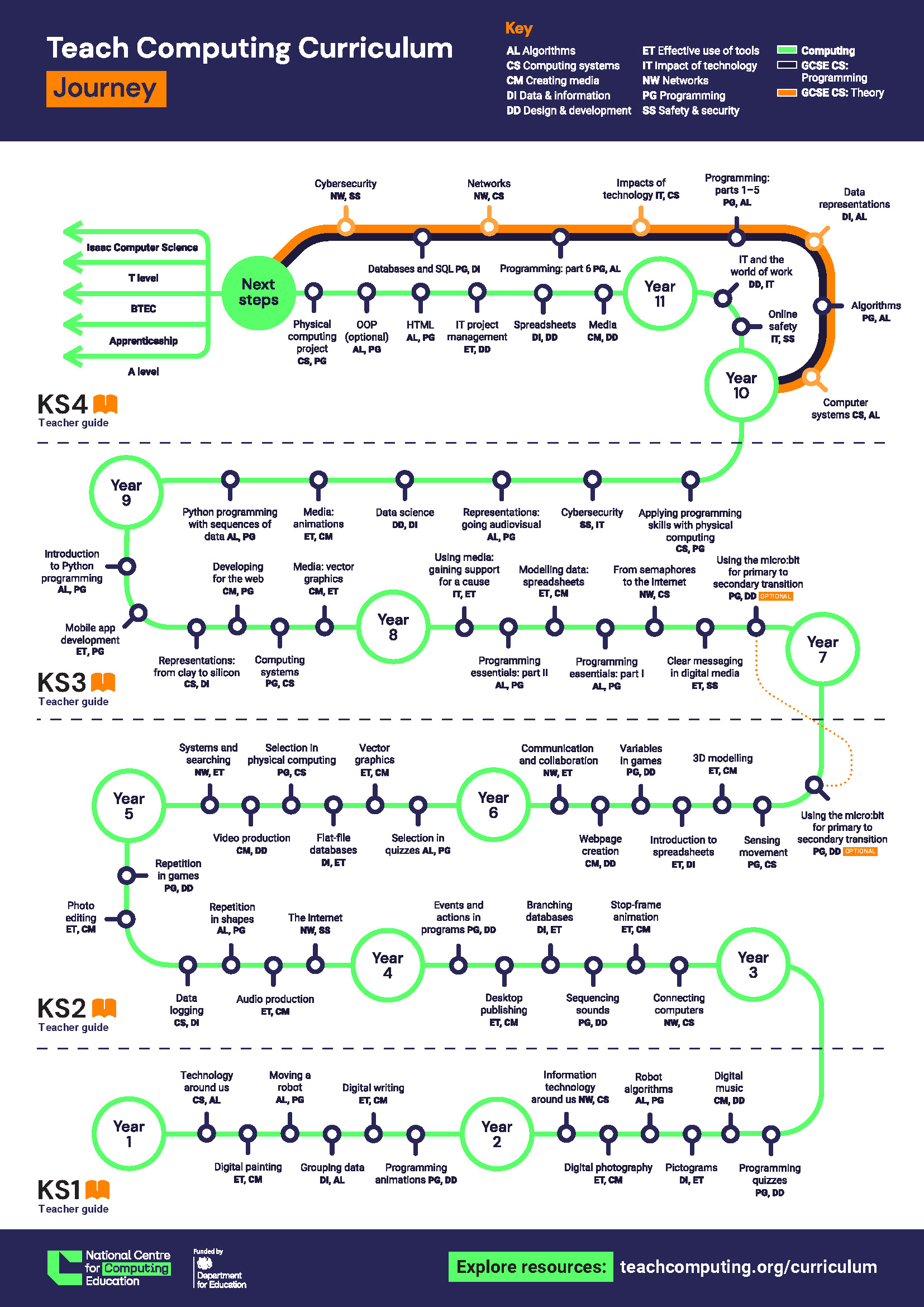Computer Science
Computers are like bicycles for the mind.
- Steve Jobs
Computer Science Curriculum Intent Statement
Our Computer Science curriculum is designed to ignite curiosity and develop problem-solving skills through ambitious, enquiry-driven learning experiences. We believe computing is not just about writing code—it is about understanding how technology shapes our world and how we can use it creatively and responsibly.
Through a spiral and sequenced curriculum, students revisit and deepen their understanding of key concepts:
- Algorithms – learning how to design efficient solutions and think computationally.
- Hardware – exploring the components that power digital systems and how they interact.
- Data Representation – understanding how information is stored, transmitted, and processed.
- Issues – examining ethical, legal, and social implications of technology in society.
- IT/Media – developing digital literacy and creative skills in web design, graphics, and multimedia.
Our curriculum begins with block-based programming in Kodu and Scratch to build confidence and creativity, then progresses to text-based programming in Python, enabling students to design and implement real-world solutions. Students also explore web development, cybersecurity, encryption, spreadsheets, and app design, connecting theory to practical applications.
We enrich learning through big questions that frame each unit, encouraging students to ask “How does technology work?” and “How does it impact our lives?” This enquiry approach is supported by projects that integrate STEM links, digital creativity, and problem-solving challenges, preparing students for future innovation.
By weaving in narratives and stories, we make computing meaningful showing how algorithms, hardware, and data have shaped history and continue to influence society. Students learn to collaborate, communicate ideas clearly, and think critically about technology’s role in the modern world.
Ultimately, our intent is to equip students with the knowledge, skills, and curiosity to thrive in a digital age—able to code, create, and innovate responsibly while understanding the ethical and global dimensions of computing.
Curriculum Pathways

Additional Opportunities Beyond the Classroom
- Links with PSHCE online safety
- Cyber security
